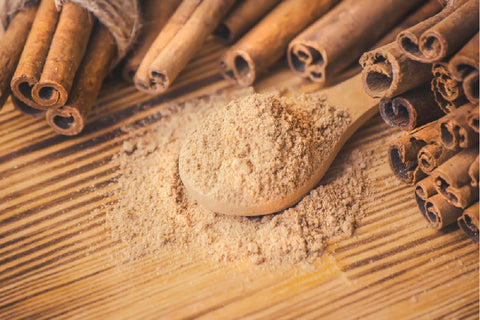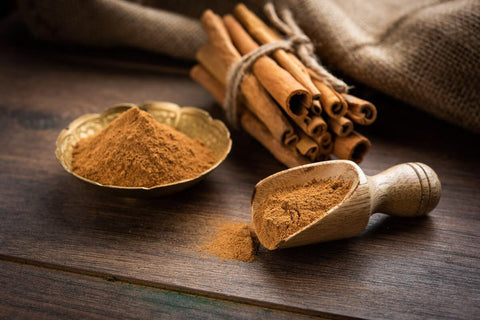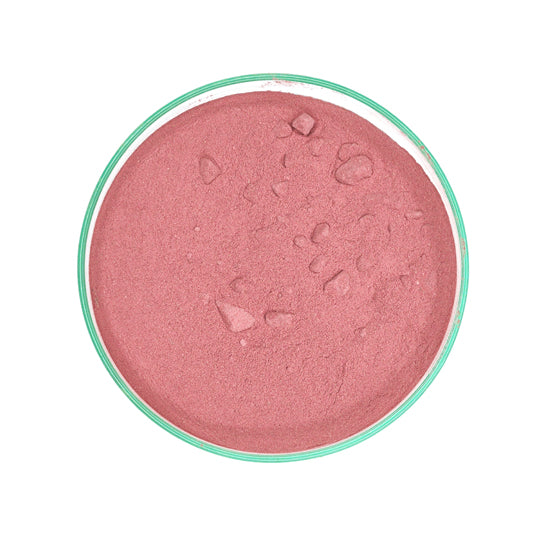We all enjoy cinnamon rolls and cinnamon-spiced morning lattes. Cinnamon not only balances the sweetness, but it also provides numerous benefits for our dental health and overall oral care. This warm and flavorful ingredient is widely used in baking and can benefit your everyday dental hygiene practice.

Cinnamon powder is excellent for exfoliating plaque and can help whiten teeth. Still, it is also antibacterial, antifungal, and antiviral, making it helpful in healing infections and inflammation in the teeth and gums. This blog will examine the benefits of Cinnamon Powder for Teeth and how to incorporate it into your daily routine.
Benefits Of Cinnamon For Your Teeth Health
Cinnamon powder is a superfood due to its numerous advantages in all aspects of life. Today, we will discuss some of the benefits of cinnamon powder for dental health.

1. Encourages Healthy Teeth
Our teeth are composed of calcium, and healthy teeth require much. Fortunately, cinnamon powder contains a high concentration of calcium, around 80 milligrams per tablespoon. Regular use of cinnamon powder delivers nutrients to the teeth, kills infection-causing bacteria, and provides essential calcium to promote healthy teeth and a confident smile.
2. Calms Oral Inflammation
Cinnamon powder also includes flavonoids, which assist in reducing inflammation, swelling, and tooth discomfort. This powder also helps to relax sore gums, which benefits infants. Cinnamon bark oil inhibits Porphyromonas gingivalis, the bacterium that causes gingivitis and gum disease. So, the next time your tooth hurts, use cinnamon powder.
3. Fights Infection
Oral infections are becoming increasingly widespread as a result of eating unhealthy foods. Add a healthy suggestion to your everyday routine with cinnamon powder for teeth. Cinnamon powder is recognized for its antibacterial, antibiotic, antifungal, and antiviral qualities, which make it ideal for treating bacterial and fungal infections and other oral ailments.
4. Attacks Bacteria
Cinnamon powder dislikes harmful microorganisms; studies have shown that this powder helps protect your teeth from tooth decay-causing germs and halitosis. Cinnamon powder includes cinnamaldehyde, an active chemical that kills the germs that cause gum disease. It also contains additional substances that attack germs by breaking down their cell walls and inhibiting cell division, thus halting bacterial development.
5. Helps Prevent Cavities
As previously said, cinnamon powder contains cinnamaldehyde, which effectively eliminates bacteria and halitosis, which are the primary causes of tooth decay and other oral issues. Cinnamon bark powder also protects against streptococcus mutans bacteria, which causes cavities and enamel degradation. Thus, using cinnamon powder regularly can help prevent cavities and save dentists money.
Is Cinnamon Powder Useful For A Toothache?
Cinnamon is good at treating toothache because it eliminates bacterial infections caused by harmful microorganisms in cavities or gaps in your teeth. These bacteria can produce severe toothaches and disrupt your everyday habits, such as eating, working, and even sleeping, making them difficult to ignore.

Studies suggest that antioxidant-rich cinnamon can help with toothaches, bacterial infections, fungal infections, viral oral infections, gum disorders, and overall oral health. This spicy component is antibacterial and antiviral. It contains cinnamaldehyde, which is effective against Streptococcus mutans in the mouth.
How To Incorporate Cinnamon Into Your Routine?
After learning so much about cinnamon powder's benefits for tooth health, you may be eager to include cinnamon in your daily routine. We've shared a few suggestions for adding this superfood to your everyday routine.

1. Add It To Food:
Cinnamon powder is a versatile spice that may be used to balance flavors in various foods, even sweets that are bad for your teeth. Depending on your taste, you can sprinkle cinnamon or yogurt on your morning cereal in moderation. This is a healthy way to begin the day.
2. Spice Up Beverages:
Cinnamon is well-known for adding a spice touch to beverages. This component suits coffee, tea, smoothies, and other beverages. Cinnamon adds flavor to your drinks while also being nutritious.
3. Oral Hygiene Practices:
The most straightforward and most efficient approach to using cinnamon powder for teeth is to mix it with toothpaste or mouthwash. Apply ¼ teaspoon of cinnamon powder to your toothpaste and gently rub your teeth. This will give your teeth a spa-like sensation.
Disclaimer: However, with great spice comes tremendous responsibility! Please do not overdo it; a little goes a long way. And if you use cinnamon supplements, always stick to the advised dose.
Conclusion
Ultimately, if you're seeking a natural way to treat toothaches and infections, cinnamon powder is for you. Because of its high antioxidant, cinnamaldehyde, and antibacterial content, this is a fantastic and must-have element for dental and overall health. However, if your discomfort is severe or mild and does not go away, see your doctor and always use the best cinnamon powder for your teeth. Visit us at www.VedaOils.com to purchase high-quality cinnamon powder at a competitive price.












 Sign in
Sign in Register now
Register now My Reward Points
My Reward Points









